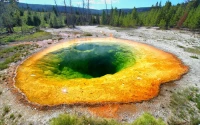So, I’ve got three browser tabs open.
In tab one, some guy looking for fishing worms near Stockholm stumbles upon a Massive medieval silver hoard of up to 20,000 coins and jewelry unearthed near Stockholm. We’re talking up to 20,000 coins from the 12th century, rings, pendants—the whole Viking jackpot. It’s a story that feels like magic. A direct, tangible link to a time before… well, before all this. A guy, a shovel, and a pot of history. It makes you feel something, right? A little spark of wonder.
In tab two, a woman in Silver Spring is shot and killed outside her home. Her ex-boyfriend pulls up, opens fire, and flees before flipping his car. Neighbors heard a dozen gunshots while they were getting their Sunday morning coffee. The white Jeep is riddled with bullet holes. It’s a story of pure, senseless, modern tragedy. It’s ugly and it’s real and it makes you feel sick to your stomach.
And then there’s tab three. Tab three is an NBCUniversal Cookie Notice.
This isn’t a story. It’s a document. A wall of text explaining, in the most excruciatingly bland corporate-speak imaginable, how they and their “partners” plan to use “HTTP cookies, HTML5 and Flash local storage/flash cookies, web beacons/GIFs, embedded scripts, ETags/cache browsers, and software development kits” to follow me around the internet.
Magic, tragedy, and legalese. This is the slurry we’re expected to drink every day.
Welcome to the Content Smoothie
Let's be real. The internet has obliterated context. It’s a firehose of information that sprays directly into our faces with no regard for what it’s mixing together. One minute you’re marveling at a Swedish king’s silver, minted before Stockholm was even a city. You can almost smell the damp earth as the guy uncovers that decayed copper cauldron, a treasure hidden from some long-forgotten war. It’s a story about luck, history, and the quiet secrets the ground keeps.
Click.

Now you’re staring at the aftermath of a domestic shooting. You’re reading about a brief car chase, a rolled-over vehicle, and a life extinguished on a suburban street. The raw, pointless violence of it is jarring. It’s a story that reminds you how fragile everything is.
These two stories, wonder and horror, have absolutely nothing to do with each other. They exist in different universes of human experience. Yet, on my screen, they are neighbors, separated by a single pixel-wide border. It’s an emotional whiplash that we’ve all just… accepted as normal. But what happens when you blend joy, grief, and boredom into one gray, tasteless sludge? Do you just go numb?
And what, exactly, is the purpose of this chaotic blend? Is it to keep us informed? To enlighten us? Offcourse not. The answer is in tab number three. The purpose of the magic and the tragedy is to keep your eyes glued to the screen just long enough for the cookie policy to do its work.
And Then, the Lawyers Showed Up
I want you to read this sentence from that cookie notice: “We and third parties may associate Measurement And Analytics Cookies, Personalization Cookies, Content Selection, Delivery Cookies, and Reporting, Ad Selection, Delivery and Reporting Cookies, and Social Media Cookies with other information we have about you.”
This is a bad sentence. No, 'bad' doesn't cover it—this is a linguistic war crime. It’s a sentence engineered to be unreadable. It’s designed to make your eyes glaze over and your brain flatline so you just scroll past it. It’s the intellectual equivalent of a gray cubicle wall.
Let me translate it for you. "We, and a shadowy cabal of data brokers you've never heard of, are going to build a terrifyingly detailed digital voodoo doll of you. We’ll track what news stories make you sad, what historical finds make you click, and what products you look at after. Then we’ll use that doll to manipulate you into buying things you don't need and voting for people you don't like."
This cookie notice is the perfect metaphor for the modern web. It’s a parasite. It attaches itself to real human stories—stories of incredible discovery and heartbreaking loss—and sucks the value out of them. The article about the 20,000 silver coins isn't there to edify you; it’s bait. The report on the Silver Spring murder isn't there to inform you; it’s just more bait. Both exist to hold your attention for the 1.7 seconds it takes for the "Ad Selection and Delivery Cookies" to sink their hooks into your browser.
Who are these policies even for? Does anyone, anywhere, actually click the "Cookie Settings" link in the footer of a website? Do they sit down with a cup of tea and carefully weigh the pros and cons of enabling "ETags/cache browsers"? They expect us to believe this is about choice and transparency, but honestly... it's a joke. It’s a legal shield for a business model that is fundamentally based on surveillance. Then again, maybe I'm the crazy one for even reading it.
You Aren't Reading Content; You're Generating Data
Here’s the punchline. The treasure hunter in Sweden found something real, something with weight and history. The tragedy in Silver Spring was horribly real, a permanent scar on a community. But the cookie policy? That’s the most real thing on the page, because it describes the actual transaction that’s taking place. You aren’t the reader. You aren’t the audience. You are the product being packaged and sold, one click at a time. The rest is just window dressing.










